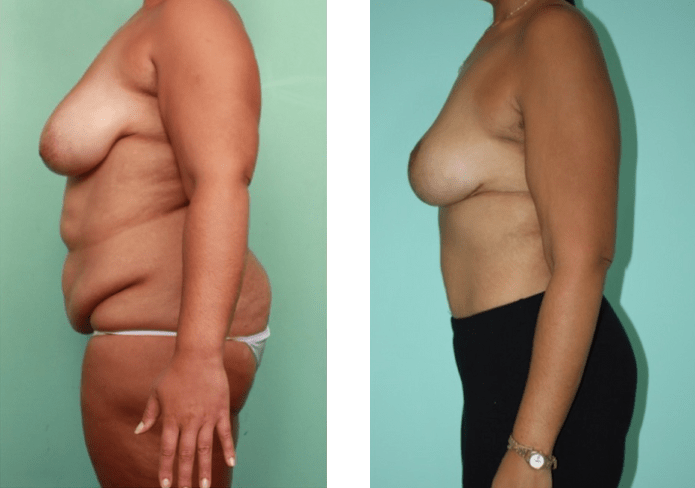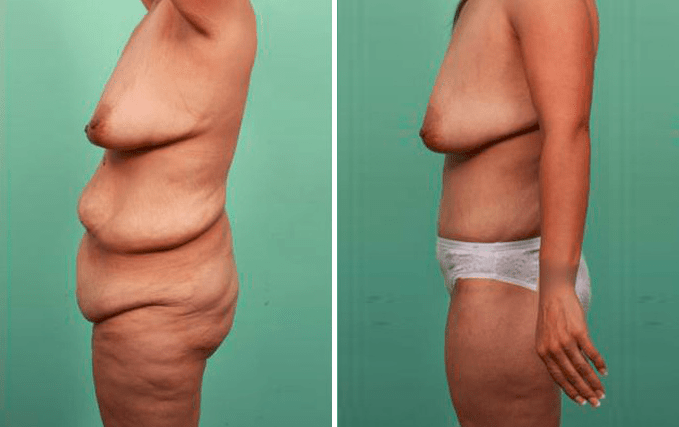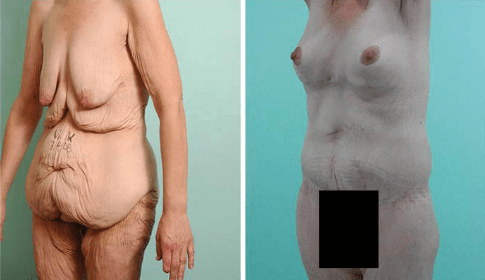
BARIATRIC SURGEON | Gabriela Rodriguez, MD, FACS
In a recent post, we spoke about weight loss surgery requirements. At the same time, patients who are thinking about bariatric surgery for weight loss have more than one option. From a gastric bypass to a gastric sleeve or lap band, every surgery has its forte for different types of patients. You are probably interested in bariatric surgery in Mexico if you have been dealing with obesity and want to explore options for a lesser cost than other countries like the United States. Particularly if you haven’t seen results from diet and exercise, the key to finally overcoming your obesity problem may be weight-loss surgery.
What bariatric surgery is better? Which weight-loss procedure will help you lose weight faster? As our bariatric expert, Dr. Gabriela Rodríguez explained, there is not one single procedure that could be declared “the best”. We created this guide to help current and potential VIDA Bariatrics patients understand the different procedures we offer at our Tijuana clinic: Gastric Sleeve, Gastric Banding, Gastric Bypass, and Duodenal Switch.
Stop dreaming about losing weight! If you are tired of dieting without results or thought you could not afford surgery to help you lose weight, give us a call. At VIDA Bariatrics, we are experts in helping patients not only lose hundreds of pounds but also get the best results, with the fewest risks by helping them choose the bariatric surgery indicated for them without the exorbitant price tag.
Bariatric Patients Deal With More Than Just Obesity
The day a patient told us he felt so discouraged because being “fat” had been the hardest thing to overcome, we were reminded of the importance of helping our bariatric patients understand one thing: obesity is a disease and like any other disease, you need medical help. Being morbidly obese is more than simply “being fat”, and if fitness plans and new diets do not help, you are not to blame.
For most of our patients living with obesity, bariatric surgeries are the single most effective tool to (finally) losing excess weight, and with that, reversing illnesses and daunting diagnoses that come with carrying all those extra pounds. If you have been diagnosed with Type 2 Diabetes, Hypertension, or another Cardiovascular disease, you will be glad to know that some bariatric surgeries can help you reverse that diagnosis -in addition to helping you lose up to 80% of your weight.
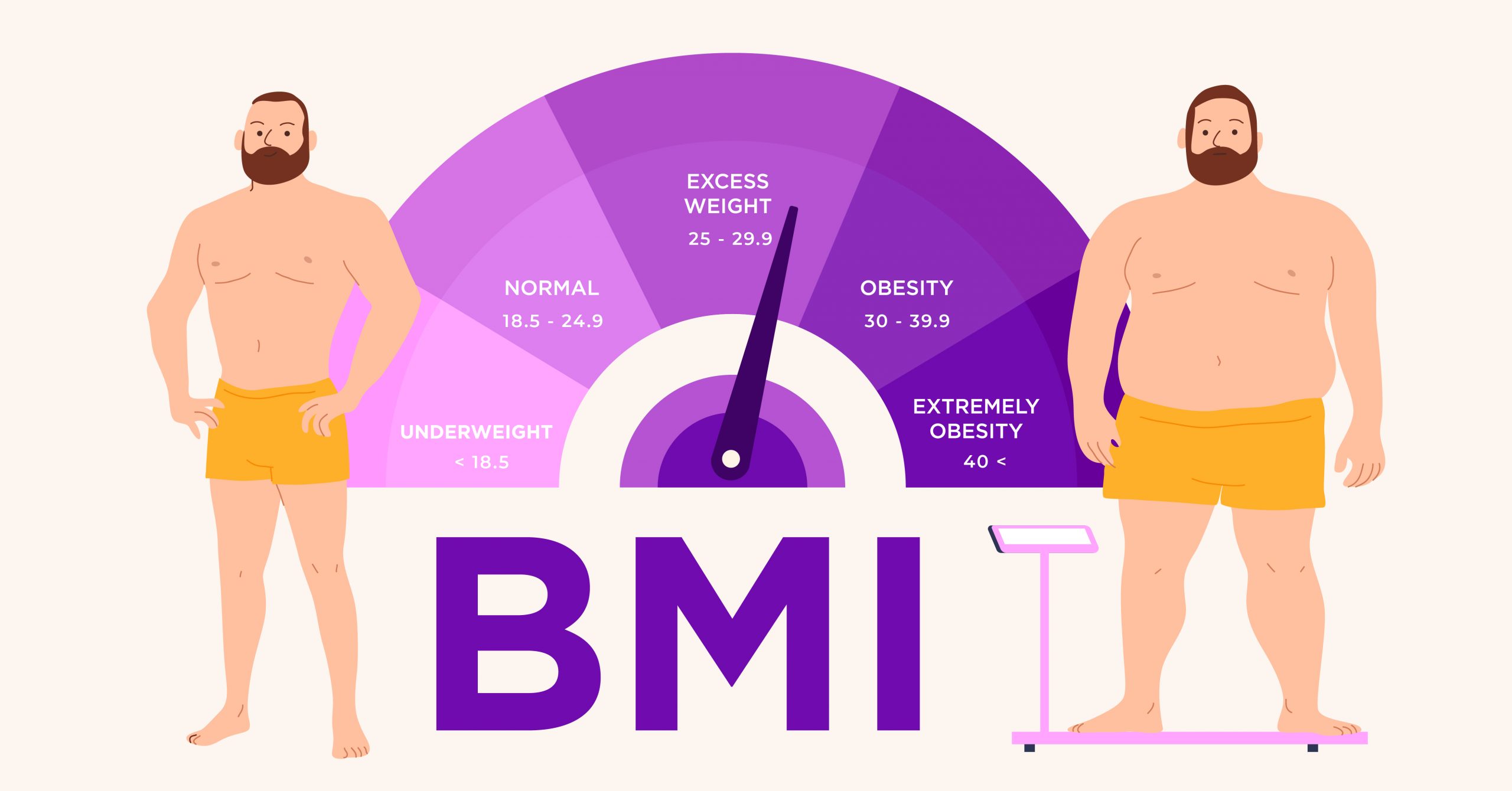
Which Bariatric Surgery is right for you?
There are some key elements your bariatric surgeon will consider before recommending a bariatric surgery over another:
- A BMI of 40 or +. Your body mass index is a big factor when deciding first if you are a candidate for bariatric surgery.
- A BMI of 35 and a diagnosis of fatty liver disease, diabetes, or high blood pressure.
- Any previous bariatric surgeries.
- If you have uncontrolled diabetes. Particularly if a new diet does not help you lose enough weight to control your diabetes.
- If you have any other risk factors, such as heart disease, severe metabolic disease, or lung problems.
- If the surgeon thinks you would do better with either a reversible or irreversible weight-loss procedure.
Bariatric Surgeries: Restrictive and Malabsorptive
Essentially, bariatric surgeries can be classified as either restrictive or malabsorptive procedures. A restrictive surgery helps you lose weight by limiting food intake by reducing the size of the stomach. A malabsorptive surgery limits calorie absorption by bypassing portions of the small intestine
Some surgeries combine both methods.
We’ll go over the bariatric procedures our very own Dr. Rodriguez performs on a regular basis, and explain to who she usually recommends each one.
Gastric Sleeve could be the best weight-loss surgery for you
Gastric Sleeve surgery, also called vertical sleeve gastrectomy, is a restrictive procedure for weight loss where the surgeon removes a significant portion of the stomach, leaving a small “sleeve” shaped stomach pouch. A smaller stomach means the patient can eat less food.
Dr. Rodriguez could recommend Gastric Sleeve surgery to:
- Higher-risk patients: Gastric Sleeve is a “simpler” surgery to perform on higher-risk surgical patients because it is shorter and the surgeon does not modify the GI tract.
- Patients with a BMI of 40 or more: Particularly for patients who weigh 450 lbs or more, a gastric sleeve is a better option than surgeries that require rerouting of the GI tract, like a gastric bypass.
- If you have had abdominal surgeries in the past: Since a gastric sleeve only involves operating in the stomach, a patient with scar tissue from a previous procedure can have this surgery without increased risk for complications.
Gastric Banding could be the best weight-loss surgery for you
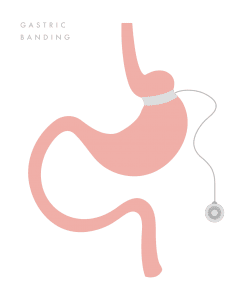
Gastric Banding, popularly referred to as Lap-Band surgery, is a reversible weight-loss procedure where the surgeon places a silicone band around the upper section of the stomach. This creates a smaller stomach pouch, limiting the amount of food the patient can ingest.
Dr. Rodriguez could recommend Gastric Banding surgery to:
- Patients with a BMI of 40 or higher or a BMI of 30 or higher and an obesity-related illness.
- The surgeon believes you would benefit from a reversible procedure.
- A patient that is willing to see the surgeon if the Lap-Band needs to be readjusted (which is a very simple procedure, often done laparoscopically).
Gastric Bypass could be the best weight-loss surgery for you
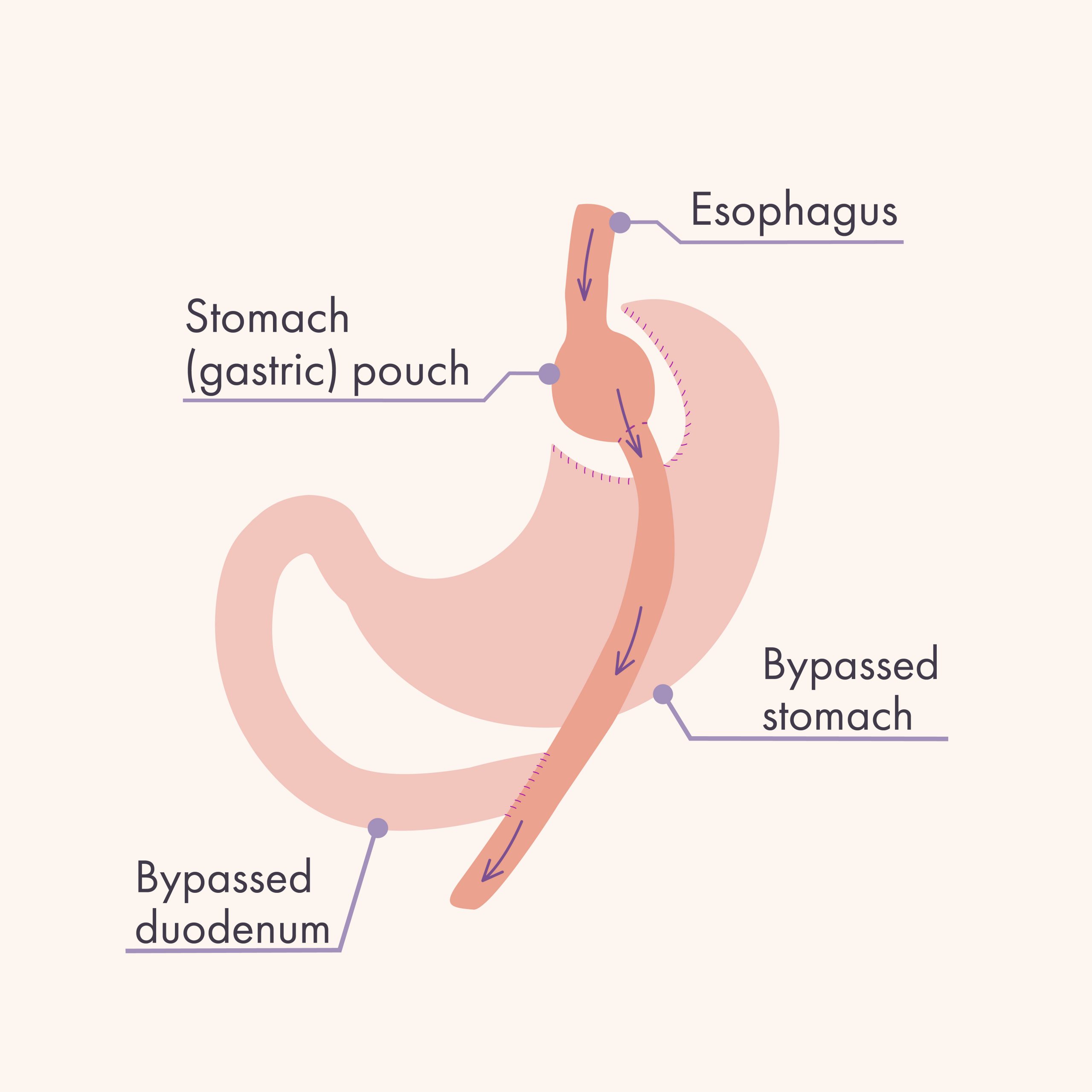
A Gastric Bypass is a restrictive and malabsorptive weight-loss surgery where the surgeon decreases the size of your stomach, down to about the size of an egg, and bypasses a portion of the small intestine.
Dr. Rodriguez could recommend Gastric Bypass surgery to:
- Patients with a high BMI where the surgeon still has room to modify the GI tract. This is because Gastric Bypass patients lose more weight.
- Patients who have been diagnosed with diabetes. While all bariatric procedures will certainly benefit diabetic patients, gastric bypass is considered the gold standard for patients with obesity-related health problems.
- Patients with other types of health problems related to their excess weight like obstructive apnea, high triglycerides, high cholesterol, infertility, heart disease, or high blood pressure among others.
Duodenal Switch could be the best weight-loss surgery for you
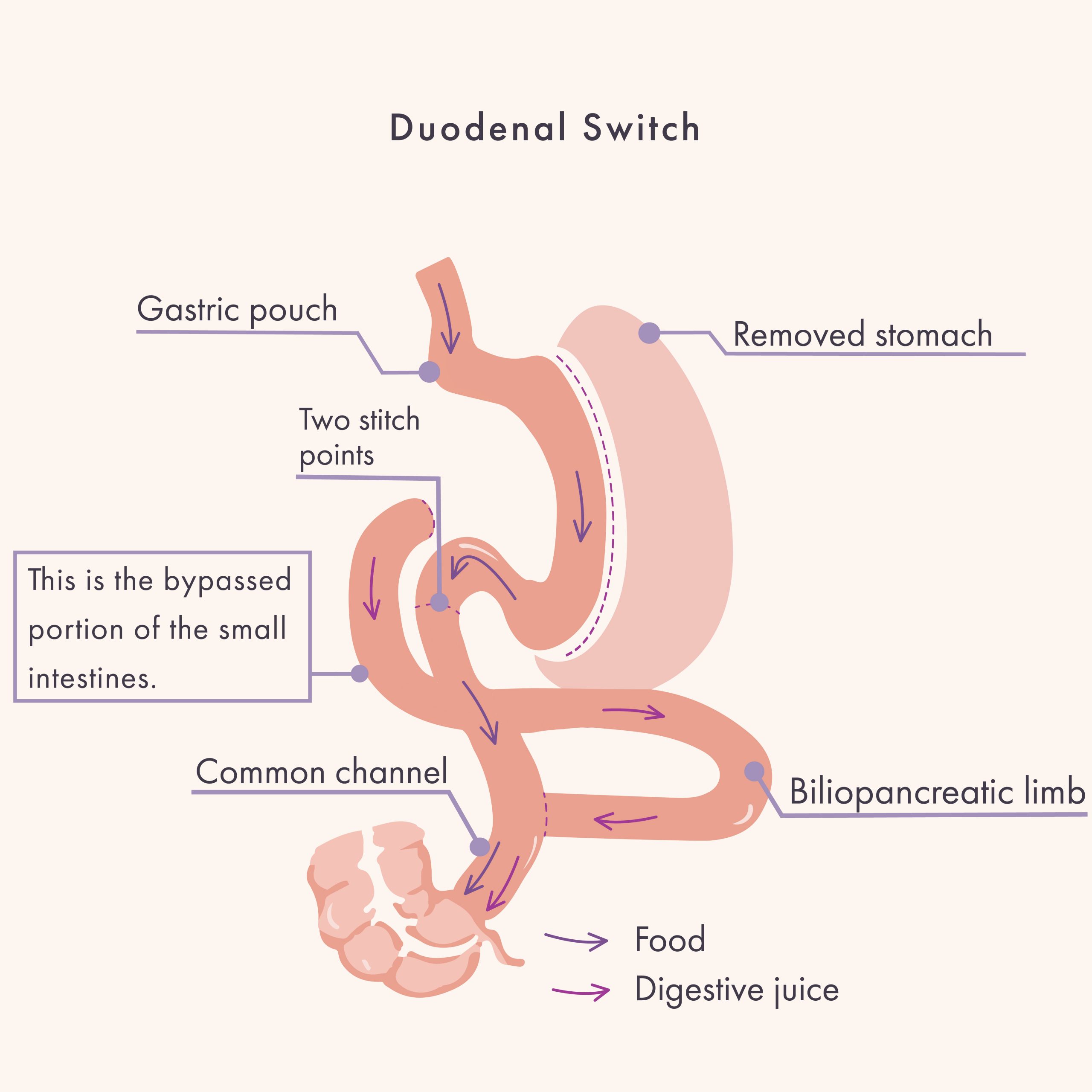
Duodenal switch surgery is a restrictive and malabsorptive surgery where the doctor removes 70% of the stomach, most of the duodenum in order to reroute the food pathway to a distal portion of the small intestine.
Dr. Rodriguez could recommend Duodenal Switch surgery to:
- Patients who are extremely thorough at following the surgeon’s instructions. Because of the complexity of the surgery, a duodenal switch might not be for everyone, particularly because the patients will need strict vitamin and mineral supplementation for the rest of their lives.
- Patients with a BMI of 50 or more.
- Patients who understand that a duodenal switch is riskier than other bariatric procedures and can have more complications afterward.
Decide on a Low-Cost Gastric Surgery For You
Knowing which bariatric surgery you are a candidate for is ultimately determined by you and your bariatric surgeon. Don’t forget that Dr. Rodriguez is also an expert in Revision Bariatric Surgery, in case you had a previous weight-loss procedure that did not work as expected. To know which bariatric procedure will lead to losing the most weight and a healthier you, contact Dr. Rodriguez and the VIDA Bariatrics team in Tijuana for a FREE consultation.
Our entire team is bilingual, board-certified and our convenient Tijuana location allows us to offer competitive bariatric surgery pricing in a modern clinic that exceeds international standards set by QUAD A. Call us at +1(619) 738-2144 and speak to a patient specialist today!
Dr. Gabriela Rodriguez specializes in General and Laparoscopic Bariatric Surgery. She brings to VIDA Wellness and Beauty a wealth of experience in bariatrics.
Virtual Consultation
Start Your Weight Loss Journey with Bariatric Surgery in Tijuana, Mexico
To schedule an appointment with our bariatric surgeon to learn more about the advantages of bariatric surgery in Tijuana, México, contact VIDA Wellness and Beauty by calling 1-619-313-6435 (toll free) and start your weight loss journey!










